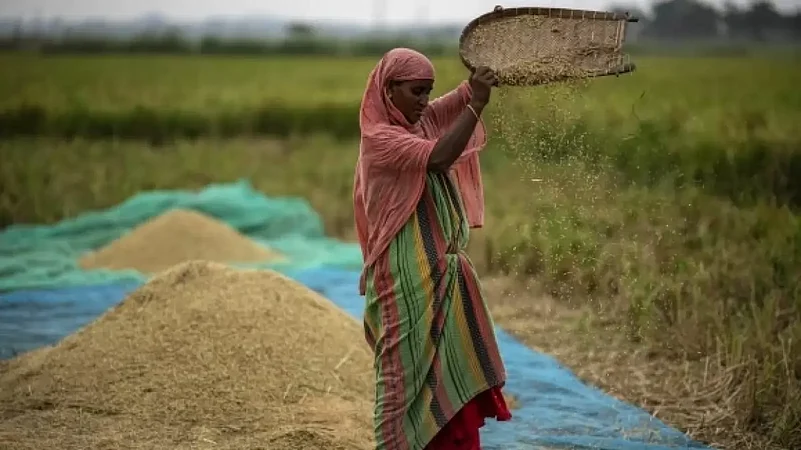Owing to a number of complex issues ranging from economy and conflict to climate change, hunger crisis continues to exacerbate across the globe like never before. According to the head of the United Nation's flagship inititiative World Food Programme (WFP), Cindy McCain, today 700 million people in the world don't even know when or if they will eat again. While humanitarian funding is drying up, demand for food is rising relentlessly.
What does the WFP chief say?
According to McCain, the funding scarcity has compelled the agency to curtail food rations for millions of people, and it has also been told that “more cuts are on the way.”
“We are now living with a series of concurrent and long-term crises that will continue to fuel global humanitarian needs. This is the humanitarian community’s new reality — our new normal — and we will be dealing with the fallout for years to come”, she said.
Findings of WFP: The hunger map in numbers
As per the agency's estimation, nearly 47 million people in over 50 countries are just one step away from famine while 45 million children under the age of five are now estimated to suffer from acute malnutrition.
According to WFP estimates from 79 countries where the Rome-based agency operates, up to 783 million people — one in 10 of the world’s population — still go to bed hungry every night.
More than 345 million people are facing high levels of food insecurity this year, an increase of almost 200 million people from early 2021 before the COVID-19 pandemic, the agency said.
Money, Conflict, Climate Change: Factors exacerbating the hunger crisis
Prevalence of hunger and malnutrition is a complex outcome of a long list of socio-economic, environmental and political attributes. Mitigating hunger and eliminating all forms of malnutrition thus requires a multidisciplinary approach which demands serious intervention of the respective governments through policies and leadership.
At the root of the soaring numbers, WFP said, is “a deadly combination of conflict, economic shocks, climate extremes and soaring fertilizer prices.”
The agency also finds the Covid-19 pandemic widely responsible for the aggravating hunger crisis which is closely associated with the resultant economic fallout from the pandemic.
Besides pandemic, the another contributing factor is the war in Ukraine that have pushed food prices out of the reach of millions of people across the world at the same time that high fertilizer prices have caused falling production of maize, rice, soybeans and wheat, the agency said.
“Our collective challenge is to ramp up the ambitious, multi-sectoral partnerships that will enable us to tackle hunger and poverty effectively, and reduce humanitarian needs over the long-term,” McCain urged business leaders at the council meeting focusing on humanitarian public-private partnerships. The aim is not just financing, but also finding innovative solutions to help the world’s neediest.
What do the business leaders say?
According to Michael Miebach, CEO of Mastercard, the “humanitarian relief has long been the domain of government” and development institutions, and the private sector was seen as a source of financial donations for supplies. However, assuring assistance to mitigate the global hunger issue, Miebach said, “The private sector stands ready to tackle the challenges at hand in partnership with the public sector.”
Miebach stressed that “business cannot succeed in a failing world” and humanitarian crises impact fellow citizens of the world. A business can use its expertise, he said, to strengthen infrastructure, “innovate new approaches and deliver solutions at scale” to improve humanitarian operations.
Jared Cohen, president of global affairs at Goldman Sachs, told the council that the revenue of many multinational companies rivals the GDP of some of the Group of 20 countries with the largest economies. And he said five American companies and many of their global counterparts have over 500,000 workers — more than the population of up to 20 U.N. member nations.
“Today’s global firms have responsibilities to our shareholders, clients, staff, communities, and the rules-based international order that makes it possible for us to do business,” he said.
Cohen said businesses can fulfill those responsibilities during crises first by not scrambling “to reinvent the wheel every time,” but by drawing on institutional memory and partnering with other firms and the public sector.
He said businesses also need “to act with speed and innovate in real time,” use local connections, and bring their expertise to the humanitarian response.


























